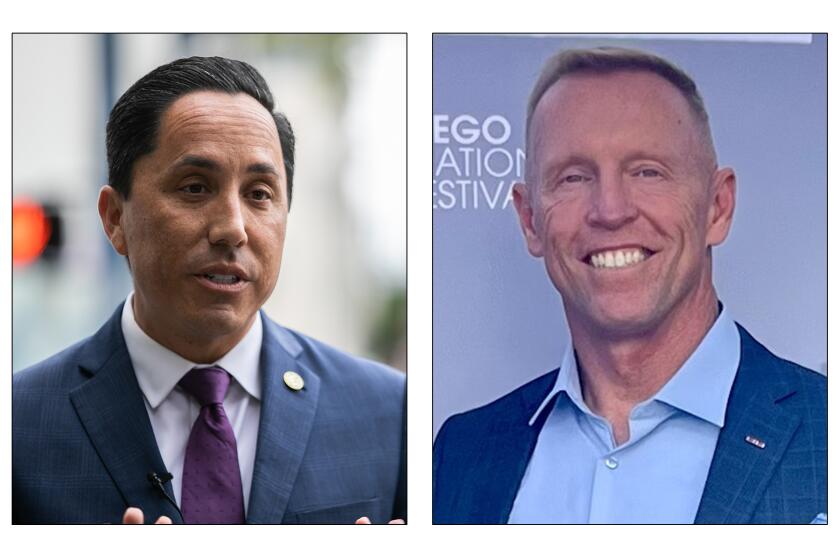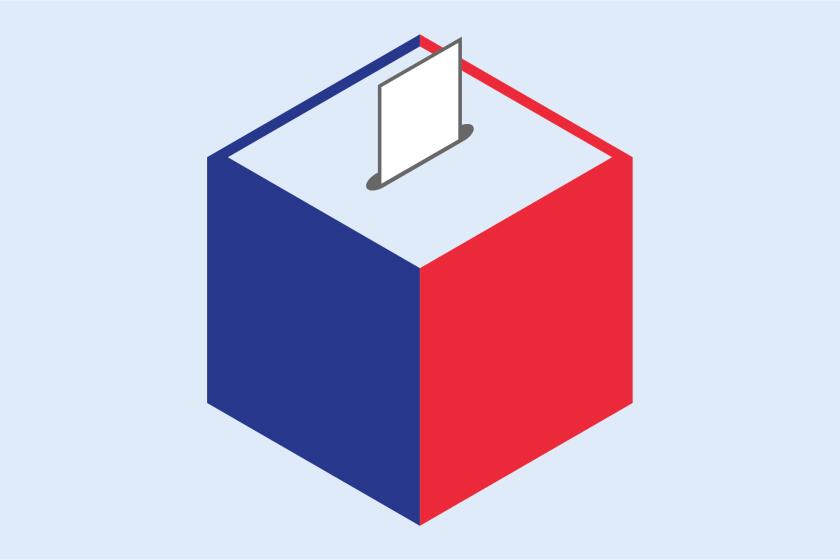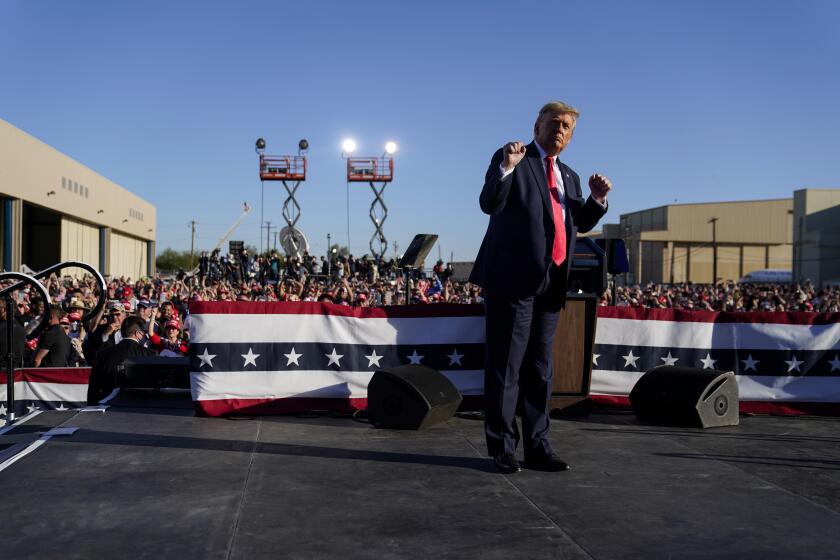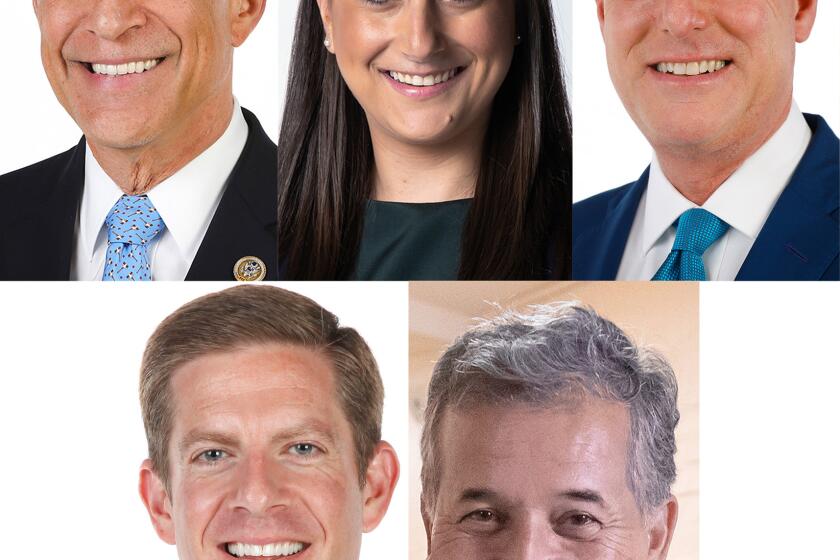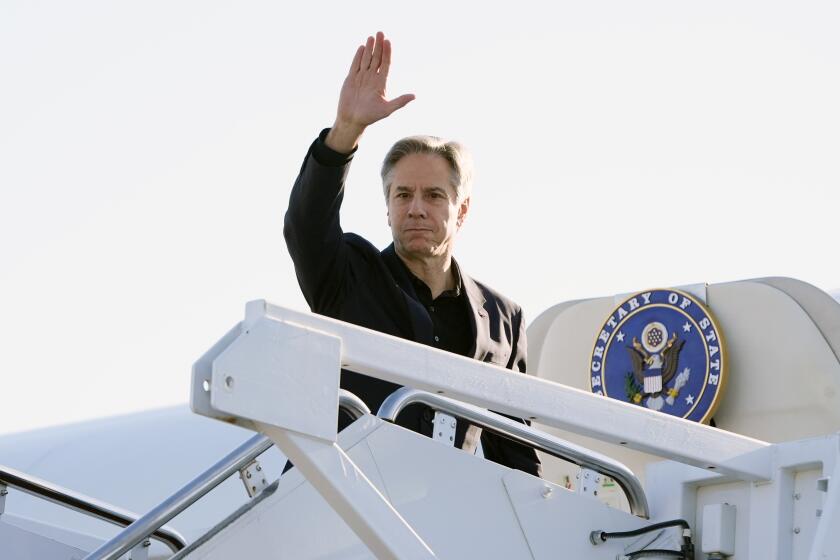Biden commits to waiving vaccine patents, irking pharmaceutical companies
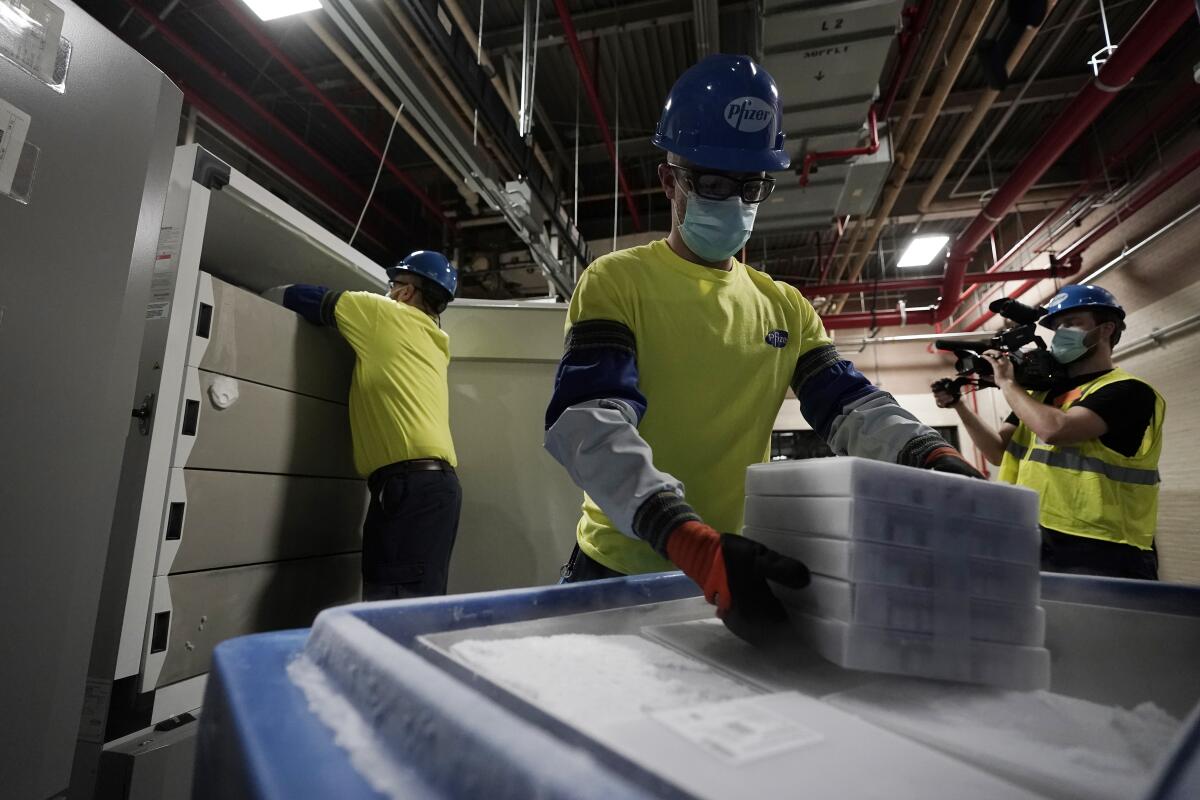
WASHINGTON - The Biden administration on Wednesday threw its support behind a proposal to waive intellectual property protections for coronavirus vaccines, with liberals framing it as a necessary bid to speed the shots to billions of people in the developing world, while the drug industry warned of devastating effects to vaccine production.
U.S. Trade Representative Katherine Tai said the United States will move forward with international discussions to waive the protections for the duration of the pandemic. U.S. officials helped block a World Trade Organization proposal that was introduced last year to stop enforcing patents for coronavirus-related medical products. Dozens of developing countries have pushed for the proposal, saying it would allow them to rapidly produce their own generic vaccines, rather than wait months or years for sufficient doses.
“This is a global health crisis, and the extraordinary circumstances of the COVID-19 pandemic call for extraordinary measures,” Tai said in a statement. “The Administration believes strongly in intellectual property protections, but in service of ending this pandemic, supports the waiver of those protections for COVID-19 vaccines.”
The decision to go forward with the waiver after weeks of internal deliberations was finalized at a White House meeting with President Joe Biden on Tuesday, said senior administration officials who spoke on the condition of anonymity to describe the deliberations. Staffers at the meeting included Tai, national security adviser Jake Sullivan, coronavirus coordinator Jeff Zients, and Bruce Reed, deputy chief of staff for policy, all of whom supported the decision. Commerce Secretary Gina Raimondo, who had concerns about the waiver, was not included in the meeting, the people said. The Commerce Department declined to comment.
Liberals had lobbied Biden to move quickly as coronavirus cases are surging in India and around the world. Sen. Bernie Sanders, I-Vt., and colleagues celebrated Biden’s decision as a necessary step for saving lives while restoring America’s position on the global stage.
The drug industry said that the move would backfire, with the Pharmaceutical Research and Manufacturers of America predicting that allowing more manufacturers to begin making shots would spark new competition for limited ingredients, slow down existing production and lead to counterfeit vaccines.
“If the end goal is to help other countries vaccinate their people, this is more political theater than it is substance,” said Brent Saunders, a longtime biotech CEO who now leads Vesper Healthcare Acquisition, saying it could take years to build new factories to produce coronavirus vaccines. “If the government wanted to be helpful, it would help expand the manufacturing capacity of the existing companies.”
Administration officials have acknowledged their uncertainty about whether the waiver will actually speed up production of coronavirus vaccines across the world. The mRNA vaccines, made by Pfizer-BioNTech and Moderna, require special technology that most countries do not have access to, raising questions about which countries will have the technological capacity to manufacture the complicated vaccines.
“Intellectual property rights is part of the problem,” White House Chief of Staff Ron Klain said Sunday on CBS News. “But really, manufacturing is the biggest problem. We have a factory here in the U.S. that has the full intellectual property rights to make the vaccine. They aren’t making doses because the factory has problems,” Klain added, referencing the ongoing safety issues at the Emergent BioSolutions plant in Baltimore.
Rep. Ami Bera, D-Calif., who chairs a House subcommittee on Asian foreign policy affairs, praised the Biden administration’s move as a way to more quickly vaccinate the world and prevent new coronavirus variants from taking hold. In an interview, he also acknowledged the concerns around patent waivers and their limitations.
“I understand under normal circumstances the importance of protecting investments and [research and development] and intellectual property and in truth, it won’t be that easy for the world to ramp up mRNA vaccines because they’ll have to build up infrastructure,” said Bera, one of four Indian Americans in Congress who called on Biden to send aid to India.
Bloomberg News first reported that the Biden administration would support the waiver.
Tai, who is attending this week’s WTO sessions in Geneva, said the discussions to proceed with negotiations over the waiver’s text would “take time.” Current and former officials said that a final agreement could differ significant from the proposed waiver, which India and South Africa first introduced in October, and that deliberations could fall apart entirely.
“Text-based negotiations are important,” said Nao Matsukata, who served in the George W. Bush administration’s trade office and helped work on the 2001 agreement that set up the existing intellectual property protections. “It just takes a long time to get consensus in the WTO around specific language.”
Tai has spent weeks meeting with advocates and opponents of the proposal, which had divided the White House. Some administration officials who are focused on the domestic coronavirus response have cautioned that waiving protections on the vaccines could spark new competition for ingredients that could disrupt global production.
The waiver also sparked broader consternation in Washington over the past few months as liberals pressed the Biden administration to support it and invoked Biden’s campaign pledge to lift patents and share vaccine breakthroughs with the world. The debate exploded in recent weeks as the United States administered hundreds of millions of doses to its own residents while other countries, including India, saw coronavirus cases surge. While nearly half of Americans have received at least one dose of coronavirus vaccine, 8% of adults worldwide have received at least one shot, according to the Our World in Data project at the University of Oxford.
House Democrats on Tuesday increased pressure on the White House to support the temporary suspension of patent protections on coronavirus vaccines, releasing a letter signed by most of the chamber’s Democratic caucus calling on Biden to “restore America’s public health leadership on the world stage.” The Trump administration worked to delay the waiver and took other steps to disengage from global health efforts.
Liberals cheered the move as a significant step toward combating the pandemic, insisting that it would allow more manufacturers to produce vaccines and save lives.
“With this waiver, we can share vaccine recipes, largely developed with taxpayer dollars, while assuring reasonable royalties to American manufacturers,” said Rep. Lloyd Doggett, D-Texas, who chairs the House Ways and Means health subcommittee and met with White House officials on the waiver last week.
“We turned up the heat, and I think the president cares deeply about keeping promises,” said Faiz Shakir, a former chief adviser to Sanders, who lobbied senior administration officials about the waiver. “For those of us who are activists, it’s important for us to remember we demand they do what they already promised. And to their credit they did so.”
Longtime pharmaceutical hands and Republicans panned the decision and predicted that it would backfire, saying it could hurt their ability to produce vaccine doses while offshoring American jobs and chilling incentives for future inventions. They also warned that it would hand taxpayer-backed technology to the nation’s international rivals; Chinese and Russian officials are pushing for the waiver.
“The Biden administration should not support waiving intellectual property protections, which would undermine the very innovation we are relying on to bring this pandemic to an end,” said Sen. Richard Burr of North Carolina, the top Republican on the Senate Health, Education, Labor and Pensions Committee.
The stock prices for Pfizer and Moderna fell sharply after the news broke Wednesday afternoon, though they made partial recoveries before the end of trading. Pfizer’s stock made an almost full recovery, closing almost flat on the day, while Moderna’s stock fell by about 6% on the day as investors processed the change in policy. Johnson & Johnson’s stock remained largely flat.
“The news clearly had an effect on the sector today, but the market is still digesting what it means for future innovation and their ability to license patents,” said Nicole Tanenbaum, partner and chief investment strategist at Chequers Financial Management.
Moderna also announced on Wednesday encouraging results from its booster shot in fighting against coronavirus variants. “It was expected the U.S. would come out with this news, so the market is trying to understand what that means while balancing it against the positive news coming out of Moderna,” Tanenbaum said.
The Washington Post’s Fenit Nirappil contributed to this report.
Copyright: (c) 2021, The Washington Post
Get Essential San Diego, weekday mornings
Get top headlines from the Union-Tribune in your inbox weekday mornings, including top news, local, sports, business, entertainment and opinion.
You may occasionally receive promotional content from the San Diego Union-Tribune.
